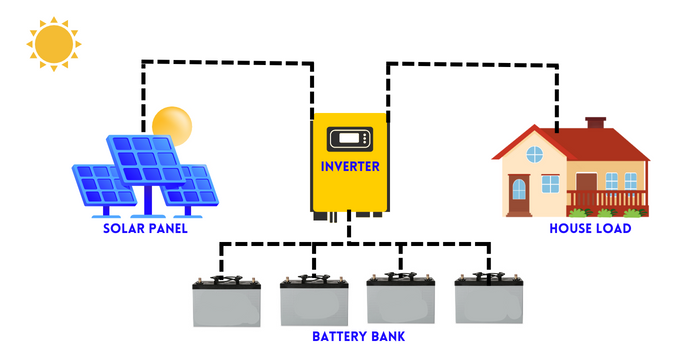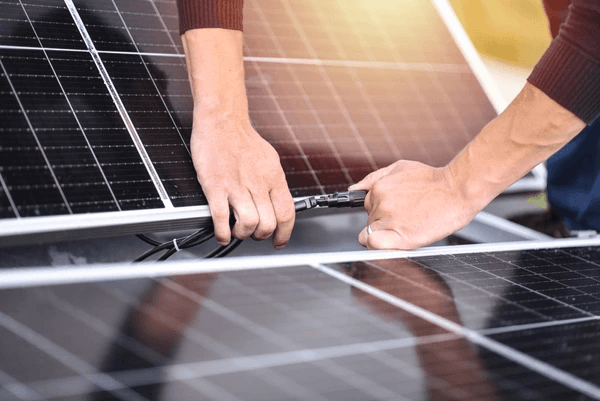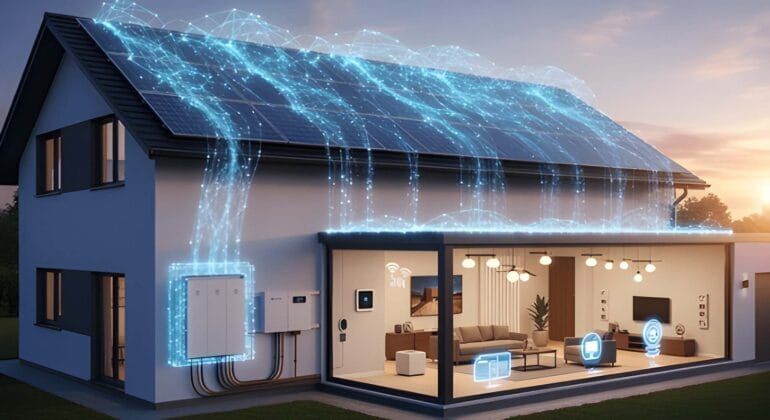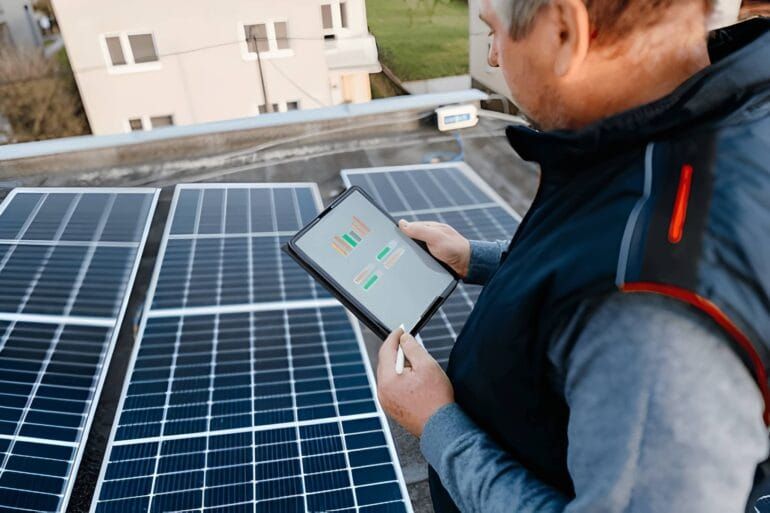Off-grid solar systems are emerging as a promising solution for sustainable living. As the world grapples with the challenges of climate change and the need to reduce our carbon footprint, off-grid solar systems offer a viable alternative to traditional energy sources. In this article, we will explore the concept of off-grid solar systems, their benefits, and how they are shaping the future of sustainable living.
1. Introduction
Off-grid solar systems represent a significant shift in how we generate and consume energy. Instead of relying on traditional power grids, these systems harness the power of the sun to provide electricity for homes, businesses, and communities. This article will delve into the inner workings of off-grid solar systems and their potential to revolutionize sustainable living.
2. What are Off-Grid Solar Systems?
Off-grid solar systems, also known as standalone solar systems, are self-sufficient power generation setups that operate independently of the electrical grid. They consist of solar panels, batteries for energy storage, charge controllers, inverters, and other necessary components. These systems enable individuals and communities to generate their own electricity and reduce dependence on fossil fuels.
3. How to do Off-Grid Solar Systems Work?
Off grid solar systems generate electricity through photovoltaic (PV) panels, which convert sunlight into direct current (DC) electricity. The DC electricity is then stored in batteries for later use. To power household appliances and devices that operate on alternating current (AC), the stored DC electricity is converted into AC electricity using an inverter. This process allows off-grid solar systems to provide a reliable and sustainable source of electricity.
4. Advantages of Off-Grid Solar Systems
Off grid solar systems offer numerous benefits, making them an attractive option for sustainable living:
a) Energy Independence
By generating their own electricity, individuals, and communities become less reliant on the traditional power grid. This independence provides stability during power outages and reduces vulnerability to rising energy costs.
b) Environmental Impact
Off grid solar systems produce clean and renewable energy, significantly reducing carbon emissions and environmental pollution. They help combat climate change and contribute to a healthier and more sustainable planet.
c) Cost Savings
Although the initial investment in an off-grid solar system can be significant, it offers long-term cost savings. Once installed, the system generates free electricity, eliminating or drastically reducing monthly utility bills.
5. Components of an Off-Grid Solar System
Off grid solar systems comprise several key components:
a) Solar Panels
Solar panels are responsible for capturing sunlight and converting it into electricity. They are typically installed on rooftops or ground-mounted in areas with ample sunlight exposure.
b) Batteries
Batteries store the excess electricity generated by solar panels for use during periods of low sunlight or at night. They ensure a continuous power supply, even when sunlight is not available.
c) Charge Controllers
Charge controllers regulate the flow of electricity between the solar panels and batteries. They prevent overcharging or undercharging of the batteries, optimizing their lifespan and performance.
d) Inverters
Inverters convert the DC electricity stored in batteries into AC electricity, which is suitable for powering household appliances and devices.
6. Selecting the Right Off-Grid Solar System
Choosing the right off-grid solar system depends on several factors, including energy requirements, location, available sunlight, and budget. Consulting with a reputable solar system provider can help determine the appropriate system size and configuration for specific needs.
7. Installation and Maintenance of Off-Grid Solar Systems
Professional installation is crucial to ensure the proper functioning and safety of off-grid solar systems. Regular maintenance, such as cleaning the solar panels and checking battery health, is essential to maximize system efficiency and longevity.
8. Off-Grid Solar Systems and Energy Independence
Off-grid solar systems empower individuals and communities with energy independence. They enable people to generate their own electricity, reducing dependence on centralized power grids and promoting self-sufficiency.
9. Off-Grid Solar Systems and Environmental Impact
Off grid solar systems play a vital role in minimizing environmental impact. By harnessing renewable energy, they contribute to a cleaner and greener planet, mitigating the harmful effects of fossil fuel consumption and greenhouse gas emissions.
10. Off-Grid Solar Systems and Cost Savings
While the initial investment in an off-grid solar system may seem substantial, it offers significant long-term cost savings. The elimination or reduction of monthly utility bills translates into substantial financial benefits over the system’s lifespan.
11. Off-Grid Solar Systems in Remote Areas
Off-grid solar systems are particularly beneficial in remote areas where connecting to the electrical grid is impractical or expensive. These systems enable access to electricity in areas that were previously underserved, improving quality of life and fostering economic development.
12. Off-Grid Solar Systems for Sustainable Housing
Off grid solar systems are an ideal choice for sustainable housing. They provide renewable and reliable energy, reducing reliance on non-renewable resources and minimizing the ecological footprint of residential buildings.
13. Off-Grid Solar Systems and Disaster Preparedness
During natural disasters or emergencies, off grid solar systems offer a lifeline for affected communities. The ability to generate electricity independently can power essential devices, provide lighting, and facilitate communication in times of crisis.
14. Off-Grid Solar Systems for Developing Countries
Off grid solar systems have immense potential in developing countries, where access to electricity is limited. These systems can bridge the energy gap and improve living conditions, enabling economic growth and empowering communities.
15. Conclusion
Off grid solar systems represent a groundbreaking solution for sustainable living. They offer energy independence, reduce environmental impact, provide cost savings, and unlock new opportunities for remote areas and developing countries. Embracing off-grid solar systems is a crucial step toward a cleaner and more sustainable future.
FAQs (Frequently Asked Questions) about Off-Grid Solar Systems:
- How does an off-grid solar system work?
An off-grid solar system works by harnessing sunlight through solar panels and converting it into electricity. The electricity is then stored in batteries for use when the sun is not shining.
- What components are included in an off-grid solar system?
An off-grid solar system typically consists of solar panels, charge controllers, batteries, inverters, and sometimes a backup generator.
- What is the role of solar panels in an off-grid solar system?
Solar panels capture sunlight and convert it into direct current (DC) electricity. They are the primary source of energy in an off-grid solar system.
- What is the purpose of a charge controller?
A charge controller regulates the flow of electricity from the solar panels to the batteries. It ensures that the batteries are not overcharged or damaged.
- Why are batteries necessary in an off-grid solar system?
Batteries store the excess electricity generated by the solar panels during the day. This stored energy is used to power the electrical loads during nighttime or when there is limited sunlight.
- How does an inverter work in an off-grid solar system?
An inverter converts the DC electricity stored in the batteries into alternating current (AC) electricity, which is used to power household appliances and devices.
- What is the role of a backup generator in an off-grid solar system?
A backup generator is an optional component that can be used to provide additional power during extended periods of low sunlight or high energy demand.
- Can I completely disconnect from the utility grid with an off-grid solar system?
Yes, an off-grid solar system allows you to disconnect from the utility grid and become self-reliant for your energy needs. However, careful planning and system sizing are required to ensure sufficient power supply.
- How do I determine the right size of an off-grid solar system for my needs?
The size of an off-grid solar system depends on your energy consumption, the number of appliances you plan to power, and the available sunlight in your location. Consulting with a solar professional can help determine the optimal system size.
- Are off-grid solar systems suitable for all locations?
Off-grid solar systems can be installed in various locations, including remote areas and regions with limited access to the utility grid. However, the availability of sunlight and proper system design are crucial for optimal performance.
- What maintenance is required for an off-grid solar system?
Regular maintenance for an off-grid solar system includes cleaning the solar panels, inspecting the batteries, checking electrical connections, and monitoring system performance. It is recommended to follow the manufacturer’s guidelines and consult with professionals for maintenance.
- How long do the batteries in an off-grid solar system last?
The lifespan of batteries in an off-grid solar system depends on factors such as battery type, usage patterns, and maintenance. Generally, well-maintained batteries can last anywhere from 5 to 15 years.
- Can I expand an off-grid solar system in the future?
Yes, off-grid solar systems can be expanded by adding more solar panels, batteries, or other system components. This allows you to increase energy generation and storage capacity based on your changing needs.
- Can off-grid solar systems power all types of appliances and devices?
Off-grid solar systems can power a wide range of appliances and devices, including lights, refrigerators, fans, televisions, computers, and charging electronic devices. However, the system’s capacity should be appropriately sized to meet the energy demands of the appliances.
- Are off-grid solar systems cost-effective in the long run?
While off-grid solar systems may require an initial investment, they can provide long-term cost savings. By generating your electricity, you can reduce or eliminate monthly utility bills. Over time, the savings on energy costs can offset the initial investment.
- Can off-grid solar systems help reduce carbon emissions?
Yes, off-grid solar systems play a significant role in reducing carbon emissions. By utilizing clean and renewable solar energy, they contribute to a greener and more sustainable environment by decreasing reliance on fossil fuels.
- Are there any government incentives or rebates available for off-grid solar system installations?
Government incentives and rebates for off-grid solar system installations vary by location. It is advisable to research local government programs, tax credits, and renewable energy incentives to explore potential financial benefits.
Remember, off-grid solar systems require careful planning, proper system design, and consideration of individual needs and local conditions. Consulting with solar professionals and conducting a comprehensive evaluation of your energy requirements are crucial steps towards a successful off-grid solar system installation.







